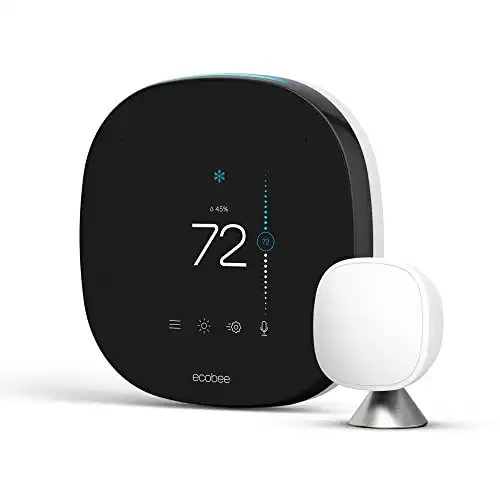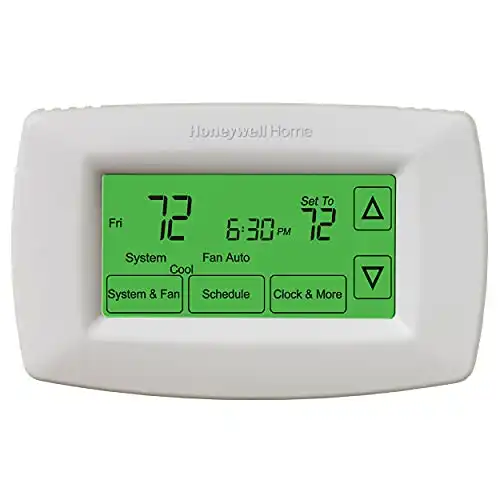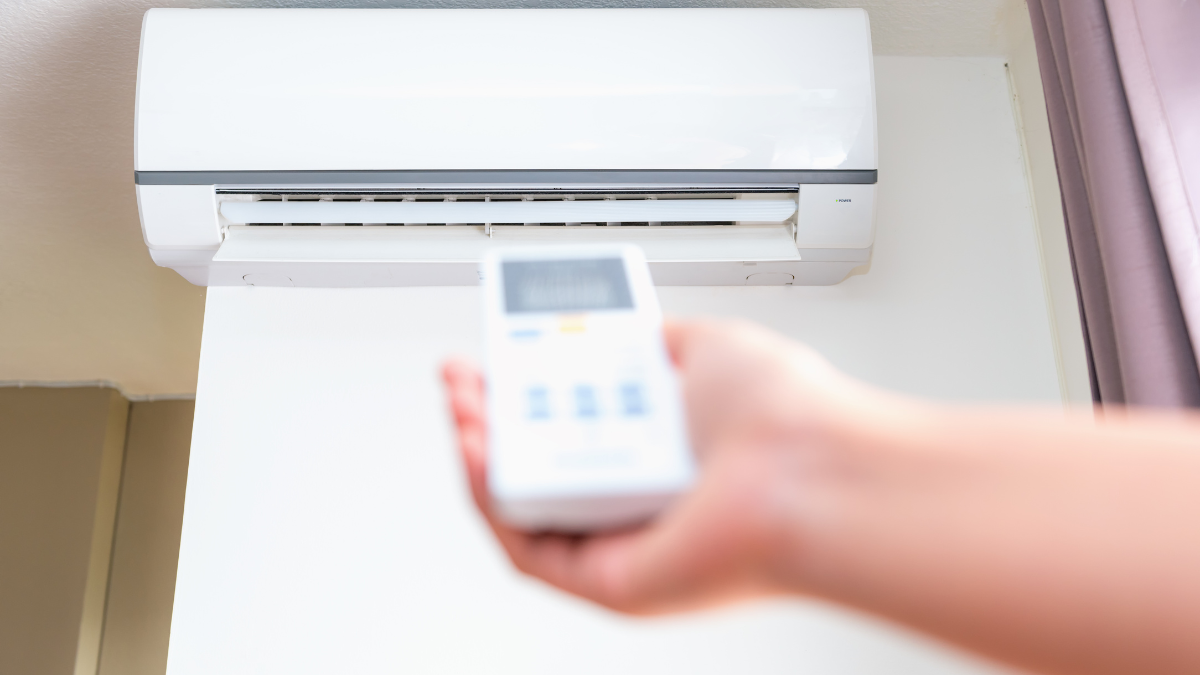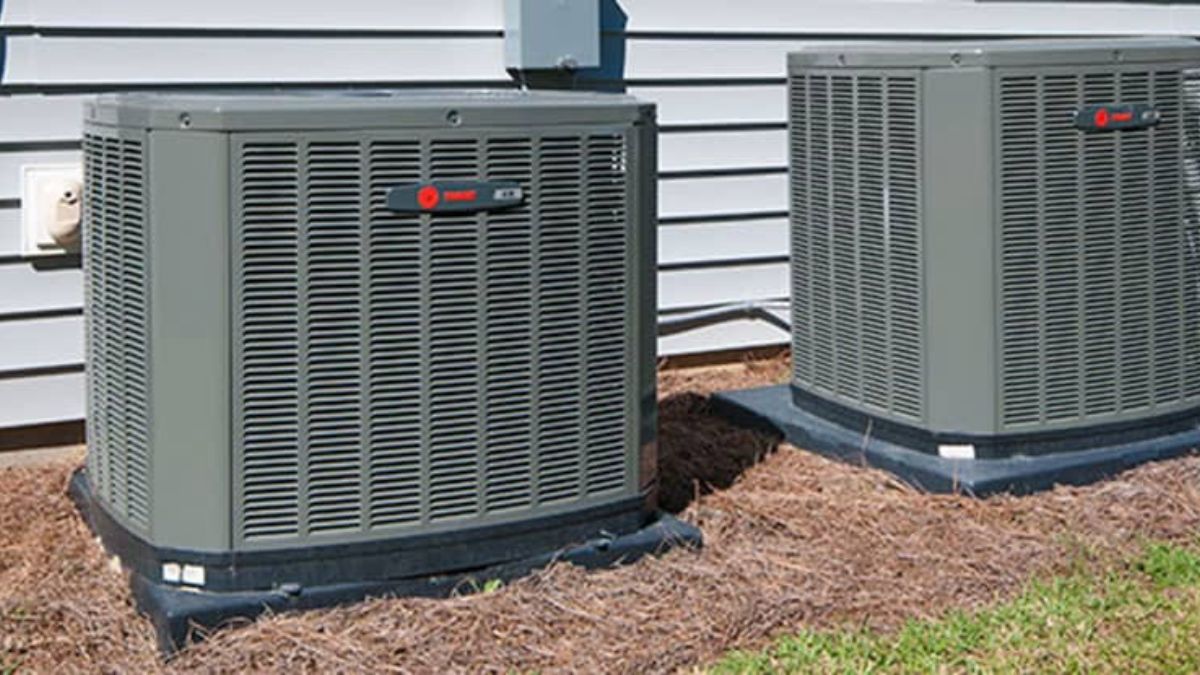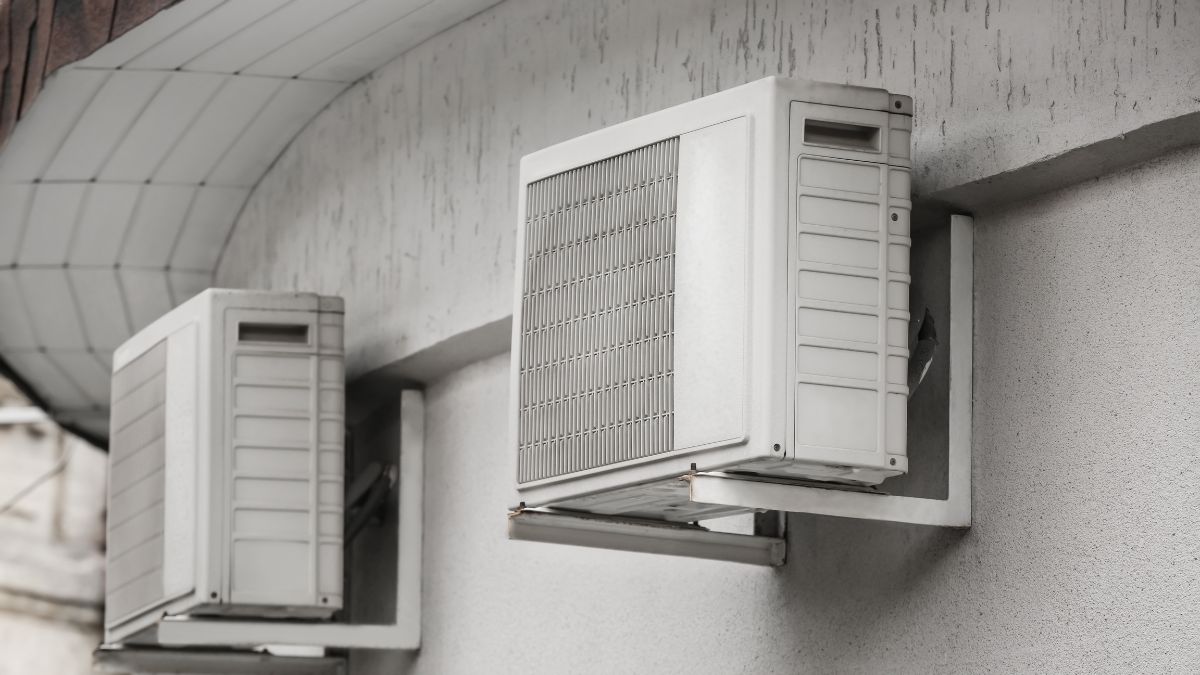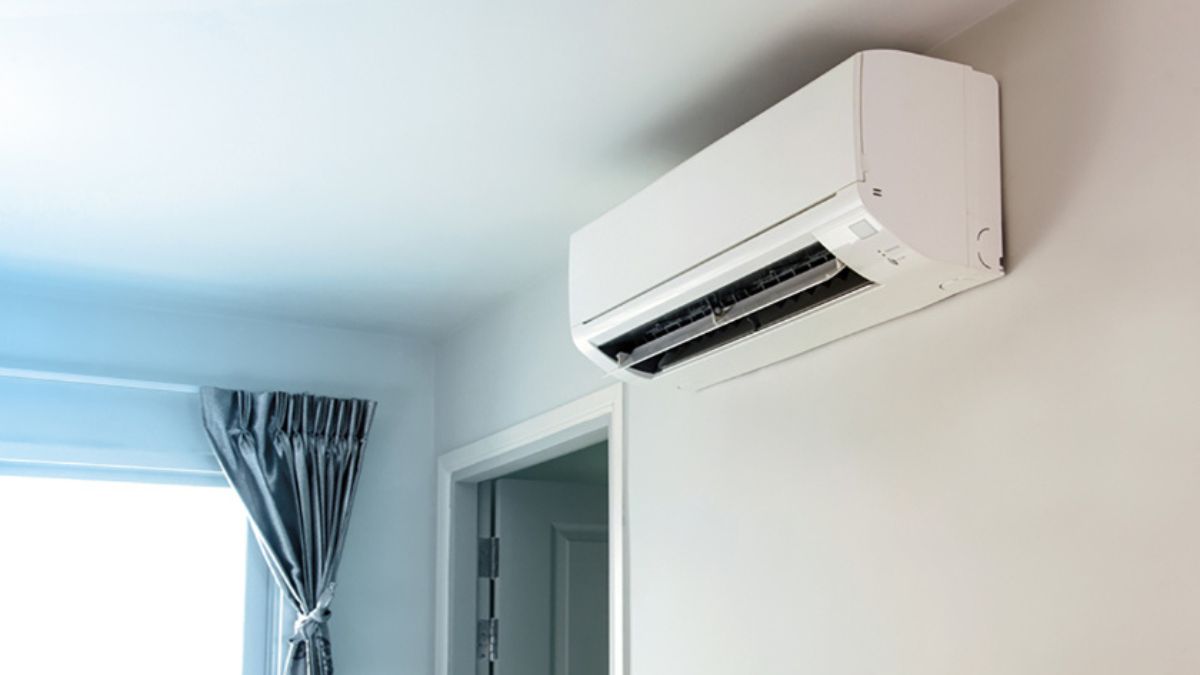Should heat pumps be turned off at night is frequently asked by new homeowners or those purchasing a heat pump for the first time.
If you own a heat pump, you’re probably conflicted about whether it should be turned off at night. Depending on who you ask, you’ll get different answers to this question, so what’s the right approach to take?
You shouldn’t need to turn your heat pump off at night. Heat pumps are designed to work at maximum efficiency when set to the indoor temperature and allowed to run as necessary. Heat pumps help maintain a constant temperature from the thermostat settings. If your heat pump runs continuously, there is likely something wrong with the heat pump or ductwork, or your home is losing energy.
We will examine both sides of the argument and how you can find the perfect middle ground.
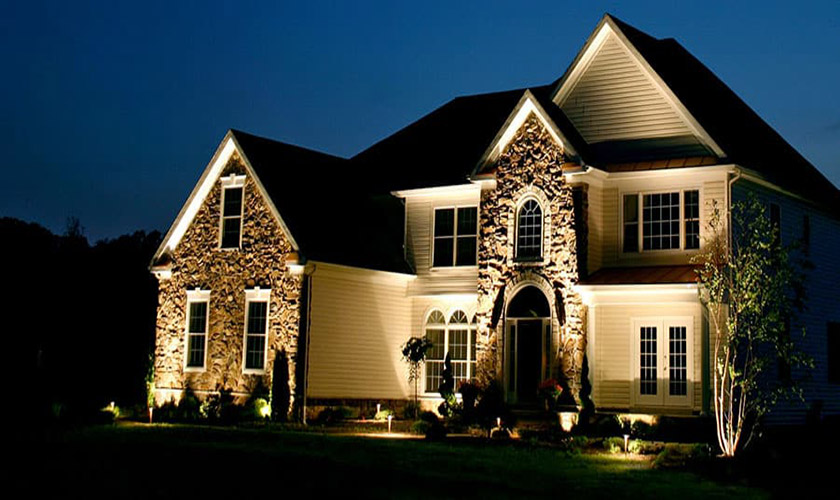
Should Heat Pumps be Turned Off at Night?
Heat pumps are very efficient in keeping a home warm in the winter and cool in the summer and are effortless to run. This is why more homeowners are using them as their main heating and cooling source. The ease of use means many people don’t think twice about leaving them running all night.
Electric heat pumps that are operating properly shouldn’t use a lot of electricity. If you consider turning your heat pump off at night, it’s probably to save money on heating and cooling costs. However, there is no solid proof that turning your system off saves money long-term.
Your heat pump won’t often run in the spring and fall as the temperatures are more moderate. Turning your system off during this time won’t change much because it won’t likely be running anyway.
Turning your heat pump off at night is unnecessary in a properly insulated home. The heat pump will operate only when needed. It will take a few hours for the temperature to drop considerably to uncomfortable levels at night with proper insulation.
Turning the heat pump off at night can take longer and cost more to heat a house, forcing the unit to use auxiliary heat. Auxiliary heat, also known as backup electric heat strips, is much more expensive but heats faster. Backup heat can cost 1 to 1, whereas the unit operates more like 4 to 1, which is much more efficient in heat pump mode.
If your home is not well insulated, your heat pump may run longer to maintain the desired temperature. If this is the case, it would be wise to consider improving your home’s insulation levels and installing energy-efficient windows where available.
Rather than shutting your heat pump off at night, consider raising or lowering the thermostat settings a few degrees. A programmable thermostat works great and automates the process. Most programmable thermostats will allow multiple settings to tailor how your heat pump operates.
The best option is the ecobee SmartThermostat with Voice Control, SmartSensor Included, Alexa Built-In.
An affordable option is the Honeywell Home RTH7600D 7-Day Programmable Touchscreen Thermostat.
When You Shouldn’t Turn the Heat Pump Off at Night
If you live in a climate where the temperature drops quickly, turning off the heat pump at night is a bad idea. Any money you’ll save by turning off the heat pump for 7-8 hours at night will most likely be lost in other ways when you consider just how much extreme cold can impact your life.
If your heat pump runs continuously, you should have it serviced to verify it’s working properly. It could just need to be cleaned or the air ducts patched. We’ve compiled a list of 16 Reasons Your Heat Pump Doesn’t Blow Hot Air.
Even if your home is properly insulated, you need to understand how quickly your home’s temperature can drop to freezing levels. If it takes only an hour or two, leaving your heat pump on throughout the night is the more sensible thing to do for the following reasons.
Cold Weather Will Negatively Affect Your Sleep
As an adult, you need 7-9 hours of sleep daily. That number increases if you slide down the age scale, so your teenagers and toddlers will need even more sleep hours to avoid many health problems.
Sleeping in cold weather means you’ll rarely feel comfortable enough to get the recommended daily quota. Experts recommend keeping your home temperatures at no lower than 60°F (15°C) if you want a good night’s rest. So, turning off the heat pump and losing sleep is counterproductive.
Even when you are not trying to sleep, resting in cold weather too frequently can lead to various health problems, including respiratory conditions and chronic obstructive pulmonary disease (COPD).
Cold Weather Can Damage Your Home
While turning the heat pump off at night may save energy costs and prolong the life of your heat pump, you could still lose money in other ways. The chain reaction of hot weather in your house can lead to mold growth from high humidity. Cold weather exposure can cause burst pipes, cracked fittings, and more during winter.
What Is the Middle Ground?
If you find that turning off your heat pump at night or leaving it running throughout the night doesn’t quite fit your unique situation, you can take the middle ground, which is using a programmable thermostat.
You can set the thermostat in various ways to ensure your heat pump only works when necessary and that your home’s temperature never drops to uncomfortable or dangerous levels.
If the weather in your area doesn’t drop drastically overnight, set the thermostat to lower the temperature by a few degrees per hour as the night unfurls. This will ensure the heat pump isn’t working full tilt all through the night while you don’t expose yourself to extreme cold.
If your home is properly insulated, you can also set the thermostat to turn off or activate the heat pump after a certain number of hours. However, ensure the heat pump comes on at least 30 minutes before your home loses all the previously generated heat for the best results. This way, it won’t have to work too hard to restore warmth.
How to Avoid Compulsorily Turning Your Heat Pump On or Off
For some people, leaving the heat pump on or off at night is not a choice. Sometimes, the house just gets uncomfortably warm even when the heat pump works at its lowest. In other cases, the house gets uncomfortably cold just a few minutes after turning off the pump. Does this describe your situation? Here are some things you should do.
Get a Heat Pump Fit for Your Climate
Heat pumps come in various heating seasonal performance HSPF and SEER ratings. You need to ensure you have picked an option that is a good fit for the weather in your area; otherwise, it will work too hard to provide warmth in your home. This is why it feels like all the heat disappears quickly after the heat pump goes off.
On the other hand, if you choose a heat pump overkill for your home, it will create too much heat. You’ll find yourself torn between sweating and getting cold with no middle ground.
Insulate Your Home
Indeed, you can’t insulate your home completely, but you should get close. At a minimum, ensure your walls, ceiling, and windows do not allow heat to escape easily. If you don’t insulate the home, the heat pump will use up more energy than necessary to keep your home warm, and you’ll also lose heat too quickly when the heat pump goes off.
Choose a Heat Pump of the Right Size
If your heat pump is too small for your home, you’ll be forced to leave it on through the night because it won’t quite generate enough ambient heat. Similarly, a heat pump that is too big for the room will overwhelm the space even at the lowest settings.
In both scenarios above, the heat pump will use more energy than necessary to run and wear out pretty quickly, either from overstretching of the parts or underuse (which leads to more frequent on-and-off cycles).
To avoid this, get a professional to recommend a heat pump that is the right size for your space. A ducted system would be better for your home than a split system.
Heat Pump FAQs
Should I leave my heat pump on all night?
You shouldn’t leave your heat pump on all night. Leaving it running for extended periods can waste energy and strain the unit, shortening its lifespan. It is best to keep your heat pump set to a comfortable temperature for maximum efficiency.
Should I leave my heat pump on all the time?
Leaving your heat pump on all the time is not recommended. Heat pumps are most efficient when used intermittently and can become overworked if left running constantly. To maximize energy efficiency, turn the heat pump thermostat to Auto and your desired temperature and let the system run as needed.
How long should a heat pump run per day?
How long a heat pump runs per day will vary based on your settings and your home’s energy efficiency. A heat pump should run for about 8 to 12 hours daily for maximum efficiency. It’s important to adjust the thermostat to Auto so the system runs as efficiently as possible.
How to keep the house warm with a heat pump?
Add insulation to your attic to keep your house warm with a heat pump to help maintain warm temperatures. Additionally, you should ensure that all doors and windows are properly sealed and install weather stripping around them to prevent drafts. You can use a programmable thermostat to set specific temperature levels throughout the day and night, so it maintains a constant temperature.
Can you turn off the heat pump?
Yes, you can turn off a heat pump. To do so, locate the Off switch on your thermostat. Mini split heat pumps operate by a remote or power switch on the wall unit. Additionally, you can disconnect the power cord from the wall outlet.
Is it OK for a heat pump to run all night?
No, running a heat pump all night is not recommended. Heat pumps can be inefficient if they are constantly running, and they may end up costing more energy bills than necessary. Running a heat pump throughout the night can make sleeping uncomfortable due to its noise and possibly overheating or cooling the room. It is generally better to set a desired temperature on your thermostat or remote and allow the heat pump to cycle on and off as necessary to maintain a consistent temperature.
What should I set my heat pump to at night?
You should set your heat pump to the temperature you are most comfortable with and set it to Auto to allow the unit to run as necessary to maintain a consistent temperature. Ideally, for heat, you can lower the temperature at night, usually between 65-68°F. For cooling, you can set the temperature at night to 72-75°F. Ideally, it’s best to use a temperature you’re comfortable with.
Final Words
No right or wrong answer is whether you should turn off your heat pump at night. Many factors come into play to determine the right action to take.
Even when saving money is your main reason for considering turning off the heat pump, you could find that you are exposing your pocket to more expenses that can blow the amount you saved out of the water. So, weigh your options carefully using the points discussed above.
For more information on SEER ratings for high-efficiency heat pumps, see our article Complete Guide to Heat Pump SEER Ratings.


